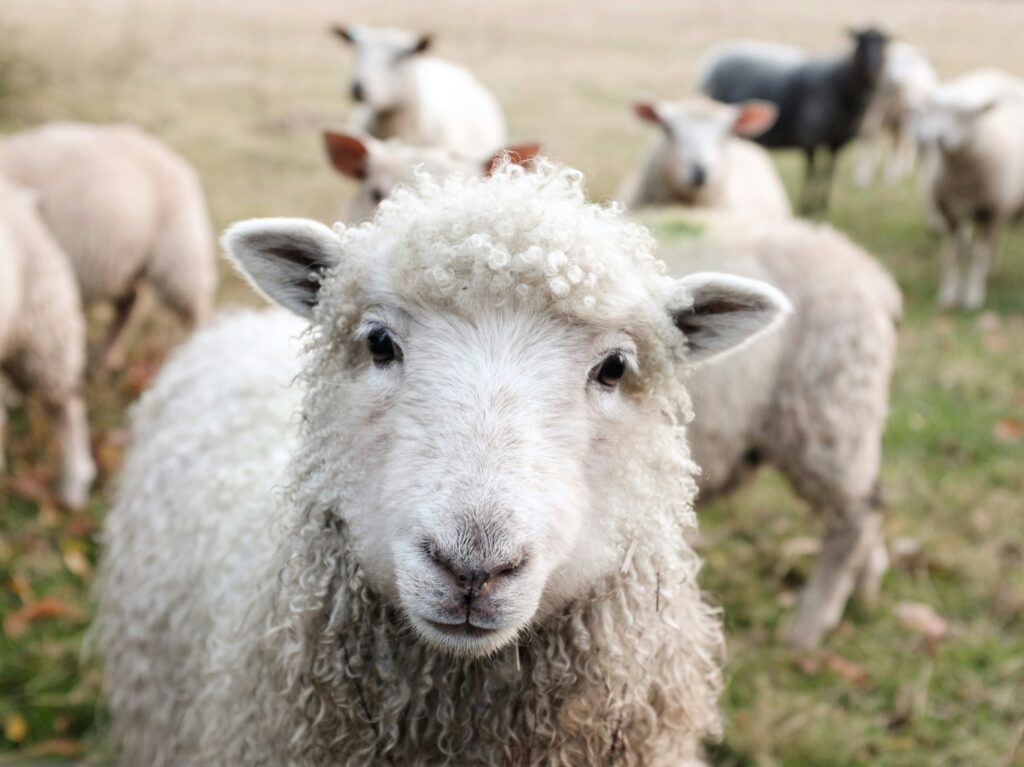
Sheep
From initial registering your sheep through to the final product packaging and labelling.
Updated 9 May 2024
Maintaining flock health
As a livestock keeper, you have a legal duty to care for the health and welfare of your sheep. Implement a ‘Flock health plan’ to prevent disease, and control disease spread by checking sheep before they are moved and isolating any new sheep brought to your farm.
You must attend to sheep appearing to be ill or injured without delay and call the vet if they do not get better or get worse.
Check the health of your flock regularly and follow the Scottish Government’s Codes for Practice for the Welfare of Sheep.
Sheep movement restrictions
When you move sheep to your farm, you then cannot move any sheep from your farm for 13 days – this is a legally required standstill period. There are exceptions (such as moving sheep directly to slaughter) and you can get an exemption by isolating the incoming sheep, but you need to apply for an exemption with this form to your local RPID office.
Read about sheep movement restrictions and isolation measures on the Scottish Government website. Check ‘Moving sheep’ for records you need to keep when moving sheep.
Body Condition Scoring
Body condition scoring (BCS) is a technique to quickly assess the condition of an individual sheep. In condition scoring, you use your hands to assess much muscle and fat the animal has.
Read more about BCS:
- Body Condition Scoring of Mature Sheep, Farm Advisory Service
- Condition Scoring Ewes, Farm Advisory Service
Sheep diseases
Sheep are affected by many diseases, and you should focus on disease prevention by implementing flock health and biosecurity plans. Disease can lead to death of sheep, including abortion in ewes.
The AHDB Sheep diseases directory is a useful overview of sheep health and disease.
Further resources:
- ‘Disease prevention for livestock and poultry keepers’, DEFRA
- Sheep and goats: health regulations, DEFRA
Notifiable diseases
If you suspect that your sheep has any of the notifiable diseases, you are legally required to immediately tell your local APHA Field Services team by contacting them.
Notifiable disease affecting sheep include:
There are also some diseases you must report to APHA. See the full list of notifiable and reportable animal diseases.
Medicines
Sometimes it is necessary to medicate your sheep to prevent or cure disease. Animal medicines should be stored and handled carefully, as they are dangerous to people or sheep if mishandled.
When using veterinary medicines, you must comply with the Control of Substances Hazardous to Health (COSHH) Regulations 2002 (COSHH). The Health and Safety Executive has published a guide on how to use animal medicines safely and comply with COSHH regulations.
You can only use veterinary medicines authorised by the Veterinary Medicines Directorate – see the directory of approved veterinary medicines. Some medicines can only be prescribed by vets.
If your sheep produce meat or milk, you cannot sell produce from the animal before the end of the medicine withdrawal. Read more about medicine residues on Food Standards Scotland.
You must keep records of medicines given to your sheep (see ‘Medicine records’).
Read more:
- ‘Veterinary medicines’, Health and Safety Executive
- ‘Sheep Medicines’, NADIS
- Webinar: Natural methods of worm control in sheep, Soil Association
Vaccinations
Vaccinations are not legally compulsory but are an important part of disease prevention. Key vaccinations for sheep include clostridial, pasteurellosis, toxoplasmosis, Enzootic Abortion of Ewes (EAE), and footrot.
Incorrect vaccination technique can kill a sheep, and it is a good idea to get training.
Find out more about sheep vaccinations:
- ‘Use of vaccines in sheep’, AHDB
- Responsible use of vaccines and vaccination in sheep production guide, RUMA
- ‘Safe and effective vaccination’, Farm Advisory Service
Castration & tail docking
Castration and tail docking are painful for sheep, and you should consider whether they are needed for animal health. There are legal restrictions on castration and tail docking, and only a vet can castrate a lamb over three months old and do surgical tail docking.
Read more in the SRUC technical note on castration and tail docking.
Euthanising sheep
It can be necessary to euthanise a critically ill or injured sheep on your farm to prevent suffering. It is a general offence to cause avoidable suffering to an animal when euthanising it, and only a competent person should do this.
Find out more:
- On-farm Humane Killing of Cattle & Sheep, Humane Slaughter Association
- ‘Casualty animals’ in RSPCA welfare standards for sheep, RSPCA
Dead sheep
You must dispose any dead sheep (including stillborn lambs) as soon as practically feasible. They must be collected by an approved knacker, hunt kennel, maggot farm, incinerator, or renderer.
You can make your own arrangement with the collector or use the National Fallen Stock Company which connects farmers and collectors.
Before collection, store the carcass securely and keep it away from animals and birds. Read more about legal requirements around fallen stock on DEFRA website.
Fallen livestock reporting and disposal
Dead livestock must be disposed of appropriately. In most of Scotland, they cannot be buried or burnt in the open because of the risk of disease spread through groundwater or air pollution. Fallen stock must be disposed without ‘undue delay’ (usually within 48 hours of death). There are a number of disposal options available.
Some remote areas of Scotland have been granted exception to bury dead animals if other disposal options are not available. For more details of the areas and methods of disposal please see the guidance.